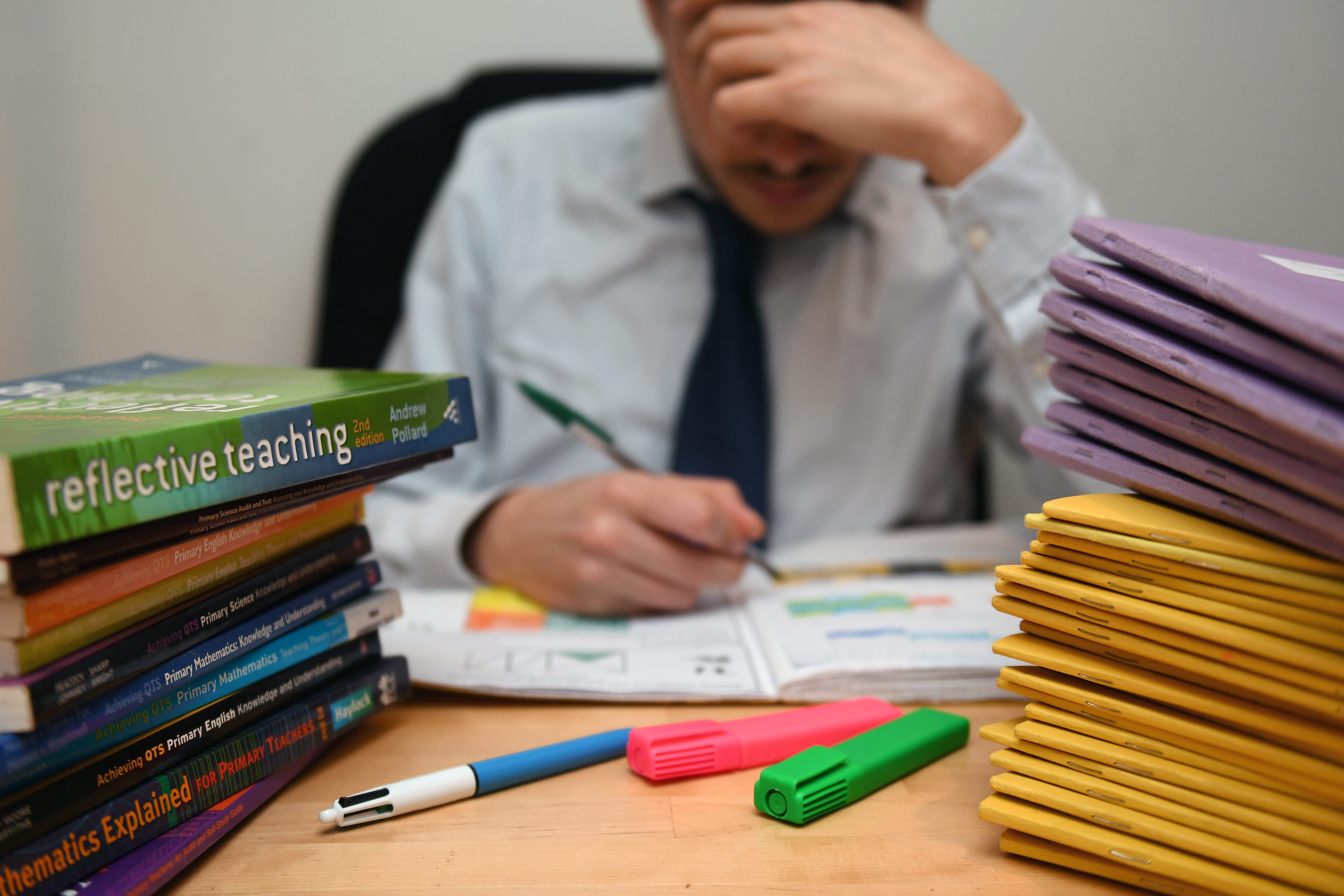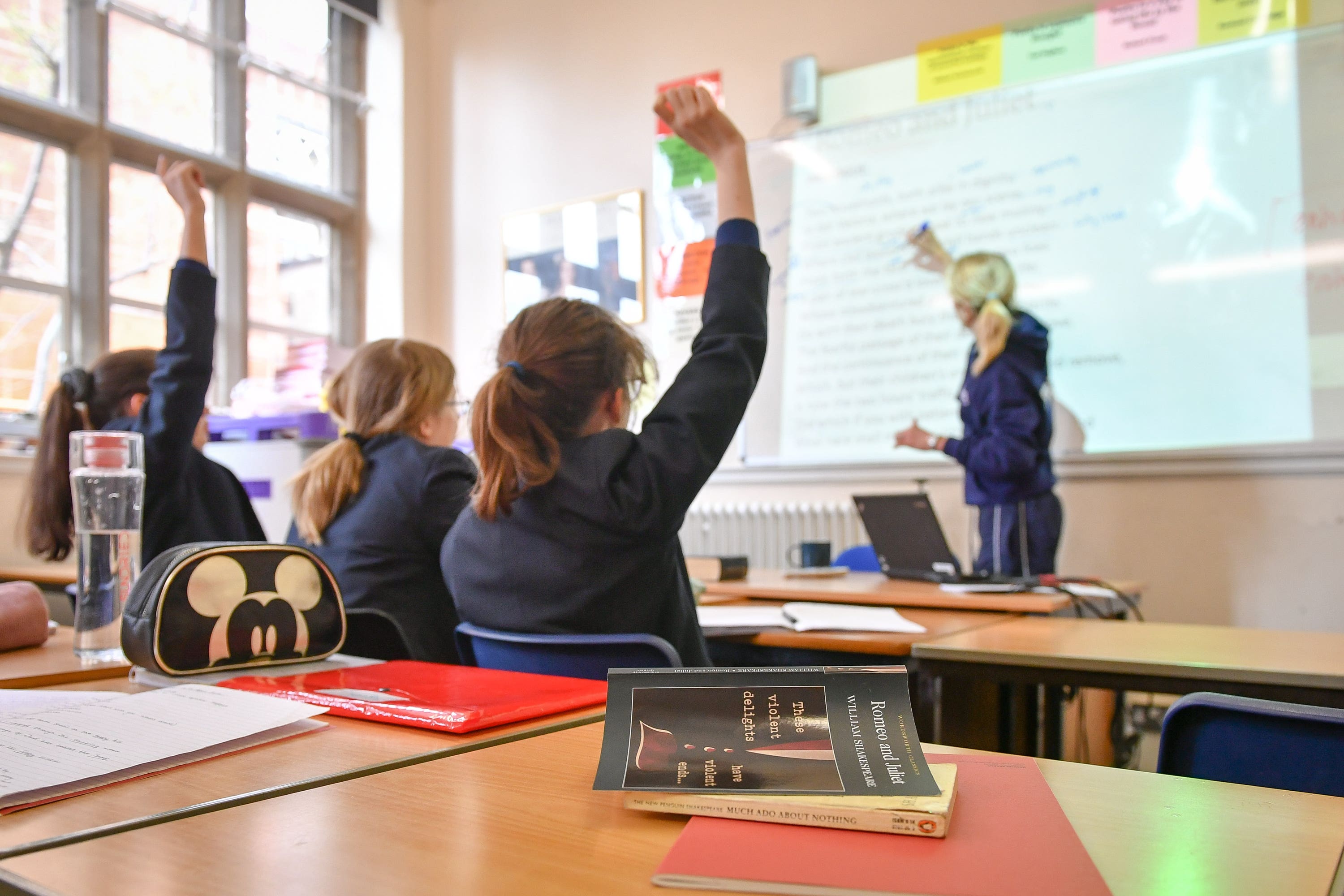Teachers facing dramatic surge in complaints from parents since Covid as staff forced to quit, survey reveals
Exclusive: Personal attacks or aggressive behaviour is the most common form of vexatious complaint impacting staff members

Your support helps us to tell the story
From reproductive rights to climate change to Big Tech, The Independent is on the ground when the story is developing. Whether it's investigating the financials of Elon Musk's pro-Trump PAC or producing our latest documentary, 'The A Word', which shines a light on the American women fighting for reproductive rights, we know how important it is to parse out the facts from the messaging.
At such a critical moment in US history, we need reporters on the ground. Your donation allows us to keep sending journalists to speak to both sides of the story.
The Independent is trusted by Americans across the entire political spectrum. And unlike many other quality news outlets, we choose not to lock Americans out of our reporting and analysis with paywalls. We believe quality journalism should be available to everyone, paid for by those who can afford it.
Your support makes all the difference.Teachers are facing a dramatic increase in complaints and aggressive behaviour from parents causing staff to quit their jobs, a new survey says.
Nine out of ten staff surveyed say the impact of dealing with complaints is having a detrimental impact on staff wellbeing and affecting the quality of a school’s education and staff retention.
Figures in the School Leaders Survey by Browne Jacobson show 68 per cent say personal attacks or aggression are the most common types of behaviour, while seven in ten teachers believe parents and carers are now quicker to escalate concerns to a formal stage.
As well as affecting their mental health, teachers reported it was also affecting the quality of education while 48 per cent of leaders said it was having a knock-on effect on staff retention.
Speaking to the Independent, Hugh Greenway, the CEO of the Elliot Foundation Academies Trust which operates 33 primary schools, said it was “absolutely our experience” that complaints had increased significantly since prior to the Covid-19 pandemic.

“I would hypothise that this increase is directly related to the experience of Covid-19, such as the breaking of societal bonds and people becoming more comfortable in complaining online,” he said. “Complaints previously tended to be dealt with in the playground or with the class teacher, but we became more used to existing online and therefore more used to complaining online.
“There is a point about online that depersonalises it. It is definitely the case that parents are going from 0 to 100 in seconds rather than through stages. I think it’s because there are large sections of society who feel disenfranchised,” he said.
The study, which was completed by over 200 school leaders who represent a leadership of over 1,800 schools, found the majority of grievances raised revolved around support for pupils with special needs.
Other matters included behaviour and discipline, equality complaints such as discrimination and transgender issues as well as parental responsibility and safeguarding.
As well as aggressive behaviour, 65 per cent said lengthy and overly complex emails were among the common types of complaints, as well as raising multiple complaints about the same issue or discussing the matter publicly on social media.
During the 2022-23 academic year, Mr Greenway said his schools had seen a 100 per cent increase in the number of complaints, with seven reaching the highest stage three level. They also received 120 stage 2 complaints and eight complaints that involved Ofstead or the local authority or an MP.
This is despite annual surveys given to pupils and parents showing that the schools were highly regarded amongst families.

In the latest findings, 51 per cent of school leaders said that there is a “real burden” being caused by parents and carers submitting complaints to multiple agencies while the internal school procedure is still ongoing.
“All you can do is listen but more often or not it is a cry from a pupil or parent that they don’t feel heard or seen or valued,” Mr Greenway said.
“The problem we have is that we have to continue listening while not sacrificing our staff to unreasonable risk or harm or the sheer amount of time it takes to listen to these complaints.
“I think we’ve got to listen to these people because the only way they can think the state cares about them is when you listen so that they know you care.”
One school leader who participated said there was a “terrifying” lack of support on the issue from the Department of Education, while another said that the DfE process of looking at complaints was “completely broken”.
Among the schools participating in the survey, 18 per cent had appointed a “complaints coordinator” to oversee the issue, while 43 per cent had instructed legal advisers to support.
However, while over half of the respondents wish for clearer DfE guidance on the difference between vexatious complaints and unreasonable behaviour and how to handle them, there is little evidence that proactive steps have been taken by school leaders to address the issue.
Victoria Hatton, a senior associate at law firm Browne Jacobson, said: “The message is clear: the rise in the number of parent/carer complaints and the handling of vexatious complaints and unreasonable parent behaviour is having a direct negative impact on staff wellbeing, staff retention, and the quality of education staff are able to deliver.
“Whilst clearer guidance from the DfE on complaints would no doubt assist, school leaders have got to do more to understand the root causes of these issues within their schools/academy trust communities and be proactive in initiating change from within.”
Join our commenting forum
Join thought-provoking conversations, follow other Independent readers and see their replies
Comments